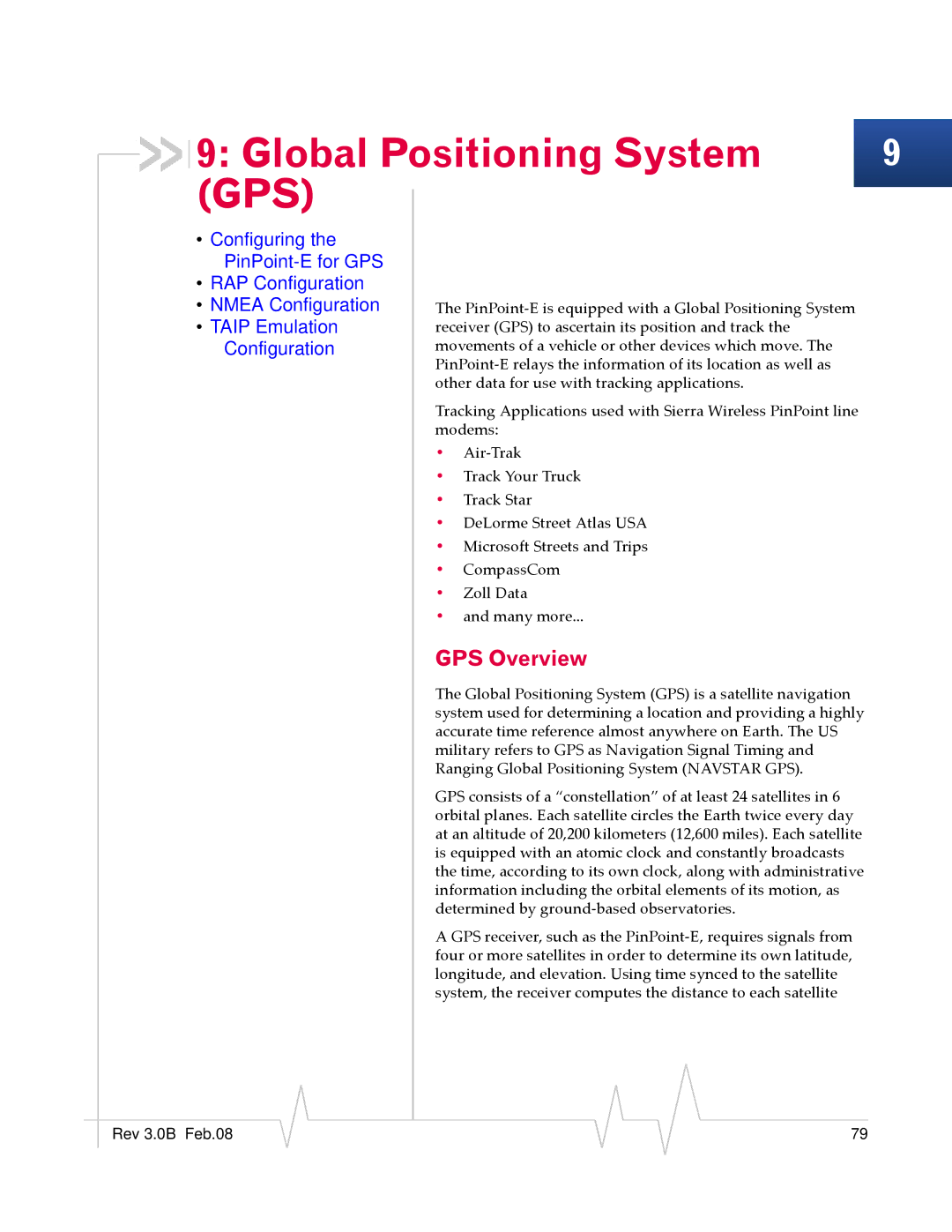
9: Global Positioning System | 9 |
(GPS) |
|
•Configuring the
•RAP Configuration
• NMEA Configuration | The PinPoint‐E is equipped with a Global Positioning System | |
• TAIP Emulation | receiver (GPS) to ascertain its position and track the | |
Configuration | movements of a vehicle or other devices which move. The | |
| PinPoint‐E relays the information of its location as well as | |
| other data for use with tracking applications. | |
| Tracking Applications used with Sierra Wireless PinPoint line | |
| modems: | |
| • | Air‐Trak |
| • | Track Your Truck |
| • | Track Star |
| • DeLorme Street Atlas USA | |
| • Microsoft Streets and Trips | |
| • | CompassCom |
| • | Zoll Data |
| • and many more... | |
GPS Overview
The Global Positioning System (GPS) is a satellite navigation system used for determining a location and providing a highly accurate time reference almost anywhere on Earth. The US military refers to GPS as Navigation Signal Timing and Ranging Global Positioning System (NAVSTAR GPS).
GPS consists of a “constellation” of at least 24 satellites in 6 orbital planes. Each satellite circles the Earth twice every day at an altitude of 20,200 kilometers (12,600 miles). Each satellite is equipped with an atomic clock and constantly broadcasts the time, according to its own clock, along with administrative information including the orbital elements of its motion, as determined by ground‐based observatories.
A GPS receiver, such as the PinPoint‐E, requires signals from four or more satellites in order to determine its own latitude, longitude, and elevation. Using time synced to the satellite system, the receiver computes the distance to each satellite
|
|
|
|
|
|
|
Rev 3.0B Feb.08 |
|
|
|
|
| 79 |
|
|
|
